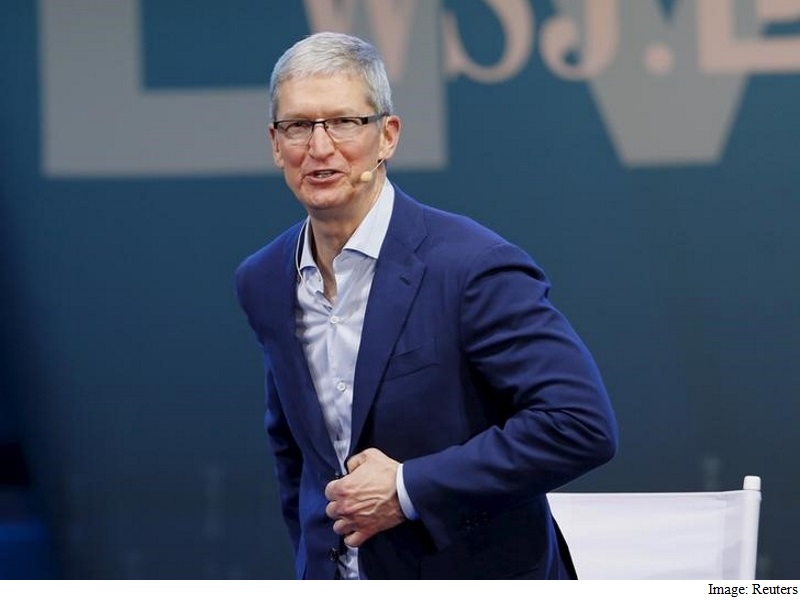- Home
- Mobiles
- Mobiles Features
- When Apple CEO Tim Cook Stood Up for Gay Rights, People Wanted to Buy More iPhones
When Apple CEO Tim Cook Stood Up for Gay Rights, People Wanted to Buy More iPhones

At the height of the fracas, an unlikely voice chimed in.
"These bills rationalize injustice," Apple CEO Tim Cook wrote in a widely-circulated Washington Post op-ed last March. Cook, who is gay, said in the op-ed that he was speaking out on behalf of Apple.
Around that same time, another high-profile executive was discussing a social mission of his own. Troubled by the deaths of Trayvon Martin and Michael Brown, Starbucks CEO Howard Schultz announced last March a campaign to tackle racism in America by having baristas talk to their customers about race relations.
To business school professors Aaron Chatterji and Michael Toffel, these efforts had something in common - they seemed to represent a new kind of corporate activism.
"These CEOs are intentionally courting controversy by weighing in on contentious issues without any obvious pretense of raising profits," the pair wrote in the Harvard Business Review last year. They noted other examples, like Goldman Sachs chief executive Lloyd Blankfein's comments supporting gay marriage, or Facebook chief operating officer Sheryl Sandberg's work combatting gender discrimination.
Chatterji, an associate professor at Duke, and Toffel, a professor at Harvard, have previously studied how companies manage their ethical reputations. There's long been a tradition of companies contributing to the social good. McDonald's, for instance, touts a charity for sick children. Oil and gas company BP plays up its efforts to uphold human rights and protect the environment.
These kinds of projects are not wholly altruistic. Through their so-called "corporate responsibility" work, companies hope to generate a warm glow that attracts customers and softens politicians.
But gay marriage and race relations are lightning rod issues in America, and it's not immediately clear if speaking out on them will attract customers or push them away.
"What we think makes this new is that many CEOs are now speaking out on controversial issues largely unrelated to the bottom line," Chatterji says. "If you're a businessperson, why would you want to alienate a large percentage of your customers?"
Recently, Chatterji and Toffel ran some online experiments to try to understand the impact of this social activism by CEOs. They used the example of Tim Cook and gay rights. The media wrote extensively about Cook's op-ed, but did really change the public's mind?
In their first experiment, the researchers wanted to see if they could sway people's opinions of Indiana's religious freedom law. One group was asked point-blank about the law. About half said they supported it. Other groups were told that some people thought the law was discriminatory. With that knowledge, support for the law fell to 40 percent.
What was interesting was that it didn't matter if the researchers used Tim Cook's name or not in the experiment. All they had to do was mention that the law might condone gay discrimination, and support for the law dropped. There wasn't anything special about the Apple CEO.
In the next experiment, though, the researchers found that Cook's activism likely didn't hurt Apple's business-instead, it helped. When people were told that the Apple CEO had spoken out against Indiana's religious freedom law, they were more likely to say they intended to buy Apple products in the near future. By contrast, when people were told about one of Tim Cook's bland opinions on management philosophy, it had little effect on purchase plans.
It seems that Cook's gay rights activism particularly motivated people to buy from the company.
Cook's activism was most effective, of course, at opening up the wallets of people who already supported same-sex marriage. Same-sex marriage opponents didn't seem to care one way or the other.
Chatterji and Toffel emphasize that this is just one experiment about one recent example of CEO activism. They plan on doing more work exploring this phenomenon-how CEOs through history involved themselves in social movements, why recent CEOs seem to be much more eager to take the lead on controversial issues, and whether their actions cost them customers.
The case of Tim Cook illustrates, at least, that engaging in hot-button issues might even be good for business. Even if his remarks weren't particularly effective at changing public opinion, as a famous figure he drew attention to the debate. And more importantly, his activism put Apple in the news - reminding many Americans to buy more Apple products.
© 2016 The Washington Post
For details of the latest launches and news from Samsung, Xiaomi, Realme, OnePlus, Oppo and other companies at the Mobile World Congress in Barcelona, visit our MWC 2026 hub.
Related Stories
- Samsung Galaxy Unpacked 2026
- iPhone 17 Pro Max
- ChatGPT
- iOS 26
- Laptop Under 50000
- Smartwatch Under 10000
- Apple Vision Pro
- Oneplus 12
- OnePlus Nord CE 3 Lite 5G
- iPhone 13
- Xiaomi 14 Pro
- Oppo Find N3
- Tecno Spark Go (2023)
- Realme V30
- Best Phones Under 25000
- Samsung Galaxy S24 Series
- Cryptocurrency
- iQoo 12
- Samsung Galaxy S24 Ultra
- Giottus
- Samsung Galaxy Z Flip 5
- Apple 'Scary Fast'
- Housefull 5
- GoPro Hero 12 Black Review
- Invincible Season 2
- JioGlass
- HD Ready TV
- Latest Mobile Phones
- Compare Phones
- Nothing Phone 4a Pro
- Infinix Note 60 Ultra
- Nothing Phone 4a
- Honor 600 Lite
- Nubia Neo 5 GT
- Realme Narzo Power 5G
- Vivo X300 FE
- Tecno Pop X
- MacBook Neo
- MacBook Pro 16-Inch (M5 Max, 2026)
- Tecno Megapad 2
- Apple iPad Air 13-Inch (2026) Wi-Fi + Cellular
- Tecno Watch GT 1S
- Huawei Watch GT Runner 2
- Xiaomi QLED TV X Pro 75
- Haier H5E Series
- Asus ROG Ally
- Nintendo Switch Lite
- Haier 1.6 Ton 5 Star Inverter Split AC (HSU19G-MZAID5BN-INV)
- Haier 1.6 Ton 5 Star Inverter Split AC (HSU19G-MZAIM5BN-INV)

















